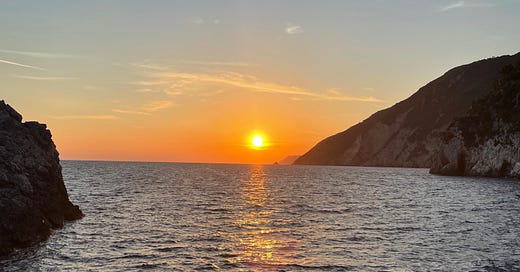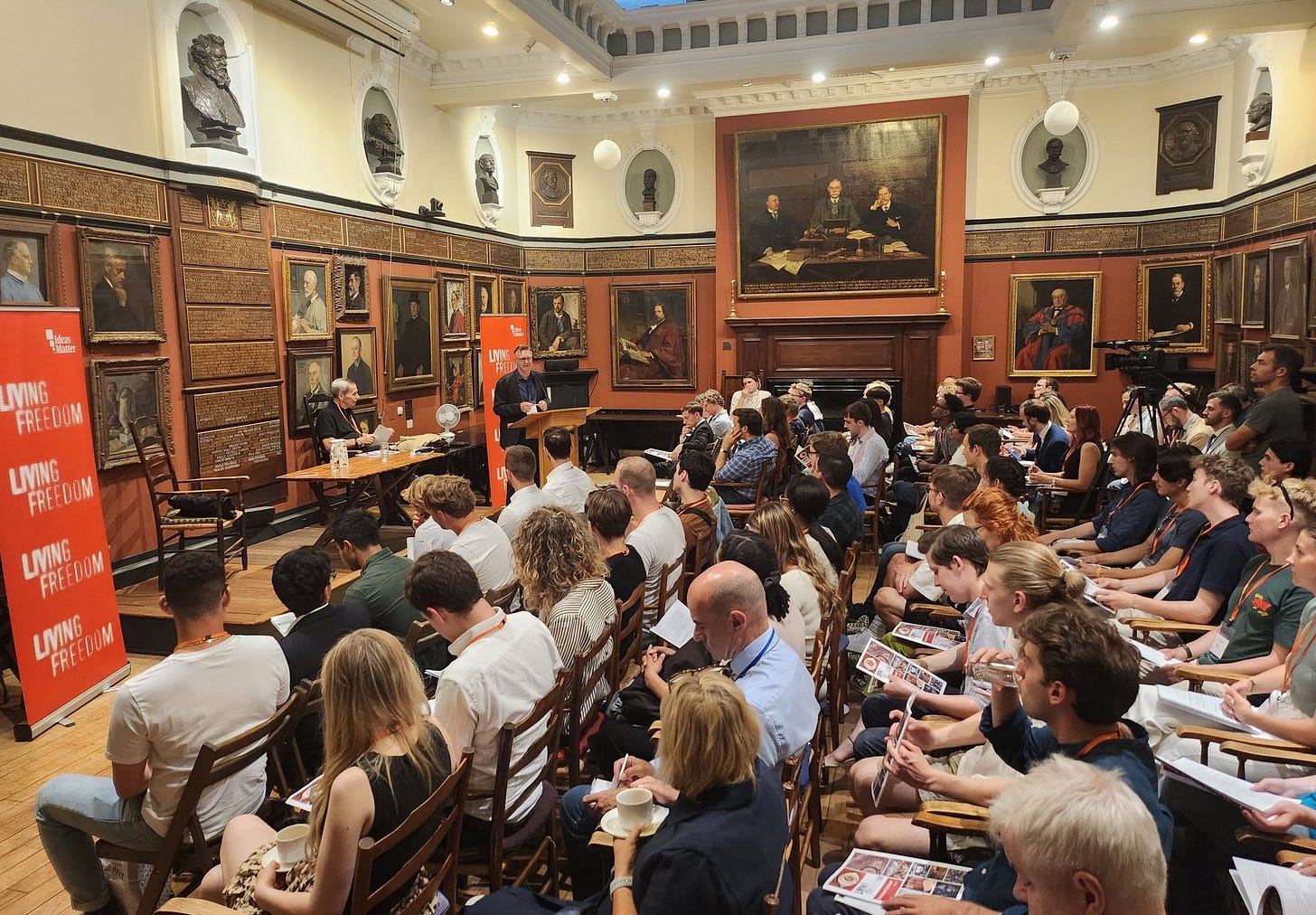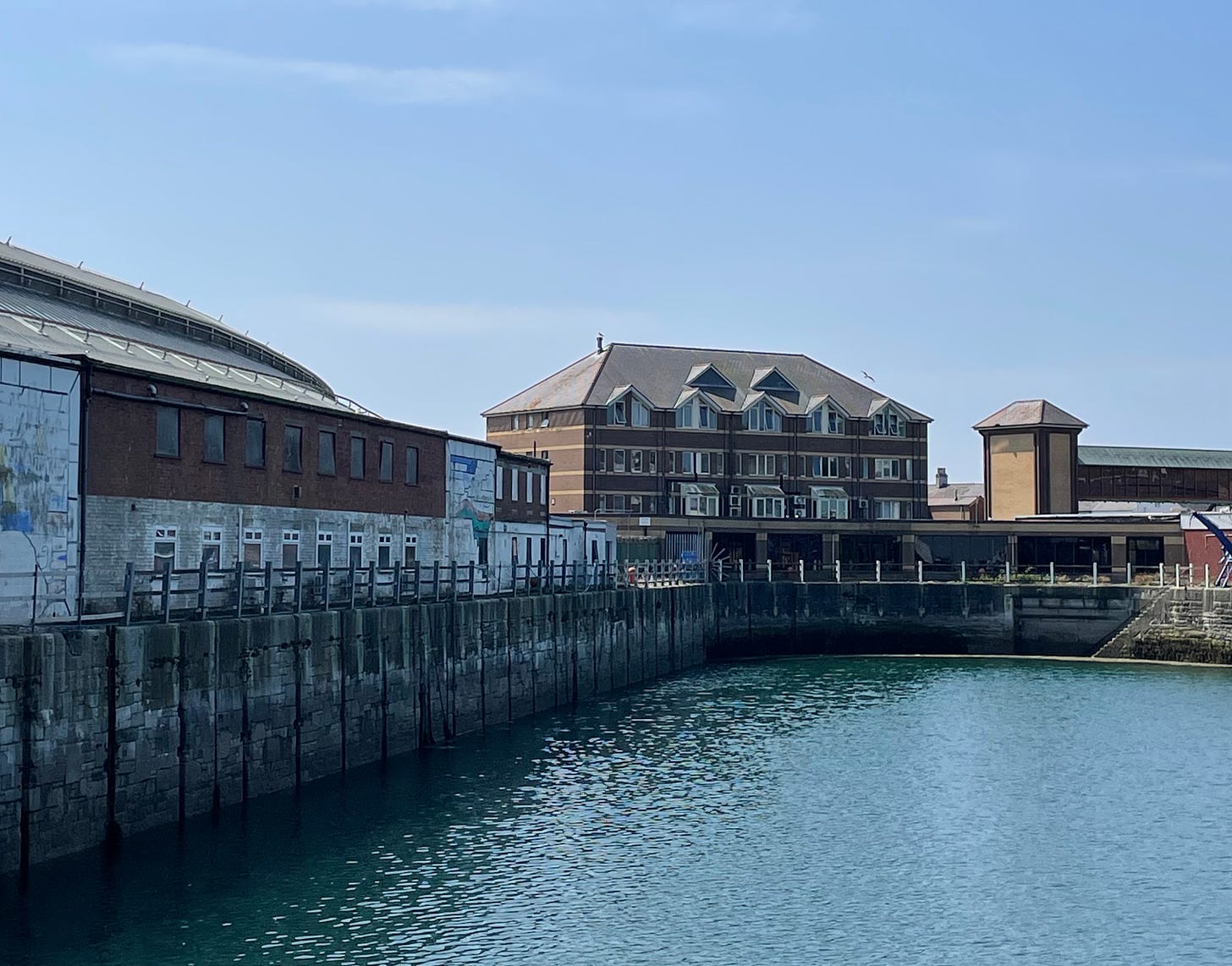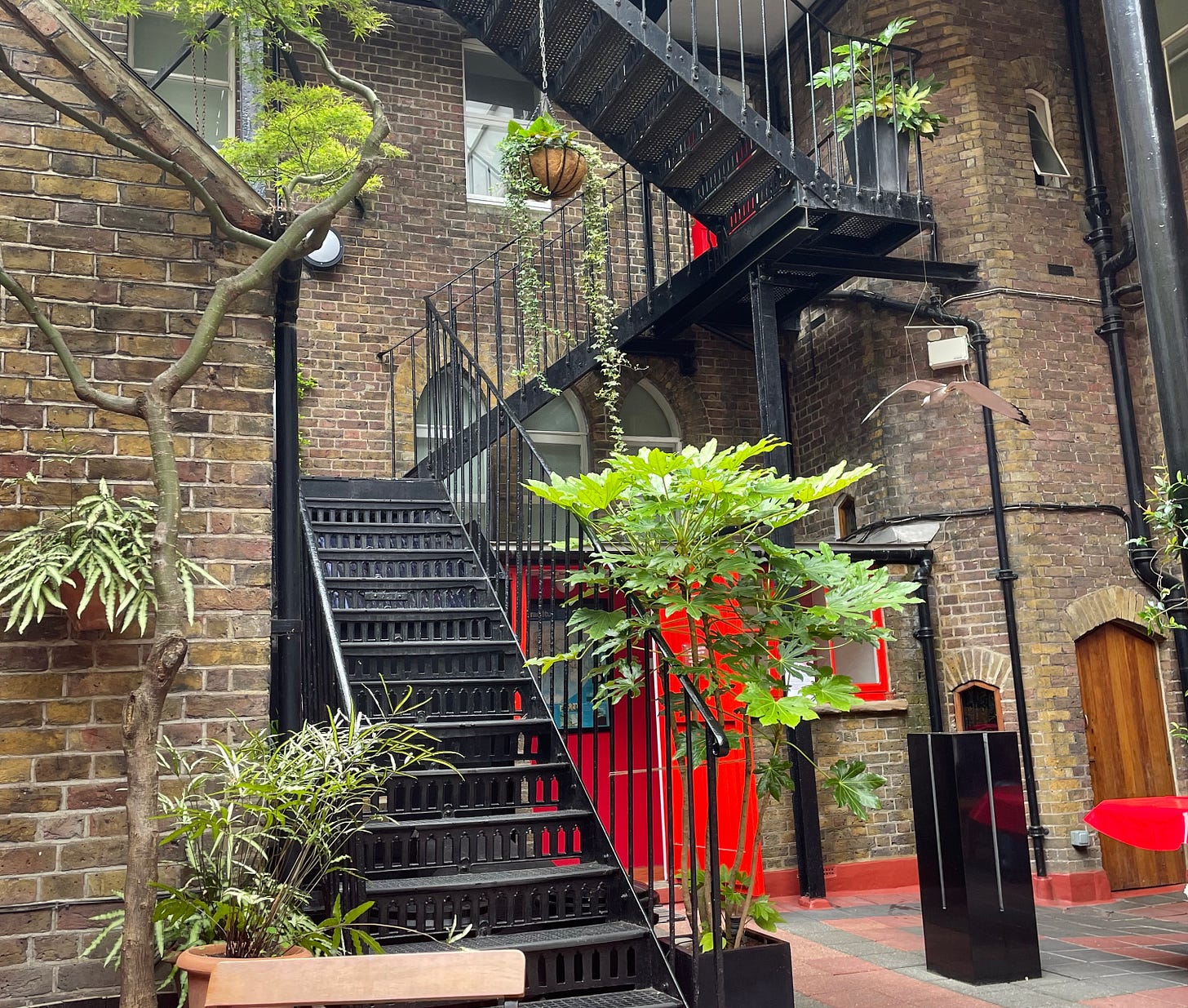There is something about just the phrase Living Freedom that opens up a space in the middle of my chest like a brilliant sunset or the opening riff in Metallica’s Fade To Black. Like walking through pouring rain after dark in the middle of a deserted road, or that split second after jumping off a cliff before being swallowed by the sea. It’s always out there like a challenge, that pesky world of possibilities. So what an apt name for a summer school with the rather ambitious aim of reinvigorating the fight for freedom in the 21st century. I was lucky to find myself in this group of young people gathered for a weekend of lectures, panels and workshops, each day followed by animated discussions in the pub where the beers blurred the lines between attendees, speakers, guests, and organisers.
As a swankily named project assistant, I spent the weekend running from room to room, filling up water glasses, taking photos, and handling mics, but that by no means hampered my ability to take a million frantic notes that I’m still trying to decipher. Each session filled up pages of stray thoughts that will be untangled in due time, but while my brain is still recovering I have some thoughts on Living Freedom that have been swirling around in the mush, the summer school, and the thrilling concept.
The setup of the school is an impressive art, perfected over many years at Ideas Matter. Each session meticulously planned, speakers carefully chosen and speeches refined, so the weekend seems effortless, the structure disappearing into itself. From the management at the venues to the Friday night curry dinner, even the paintings on the wall seemed to urge everyone to bring their best. By the end, attendees were no longer hearing lectures and asking questions, but part of a shared force of perpetual discussion, greater than the sum of its parts. Some speakers stepped into the line of fire on the most contentious issues of our times, others allowed everyone to step back from the culture wars to discuss literature or criticism in a larger context. The sessions complimented each other, and their central tenants provided a frame for the daring unfinished arguments swirling in our younger minds.
After the where-are-you-from’s, the good-to-meet-yous and the awkward silences, Frank Furedi kicked off on Thursday evening with single lecture, an exploration of the freedom of conscience. It was fitting to begin from within, establishing the reverence for independence of mind that fuelled the crowd. Afterwards outside the Queens Larder, the pub of the weekend, all traces of polite introduction were shed. As became a theme, there was just too much to discuss. He spoke of radical tolerance and the importance of cultivating a strong, independent and judgemental conscience that is separate from the world of laws and social norms. He commended the guilty conscience: the gentle but forceful voice that tells us we have strayed. That first session left me with one tacky sentence underlined and bold: I won’t let anything command me. The stubborn voice I imagine is as much that of a child as the picture of my guilty conscience.
In practice though, claims to freedom are anything but childlike. You grow into freedom as you move from home, separate yourself from your parents and the social world you imprisoned yourself in during your teenage years in an effort to be liked. This inner life is a tricky thing to put a finger on, this force that cares whether it’s being controlled, but it’s unmistakeable. It’s the defiant part of me that wants to see how far I can take the freedom of growing up. It is the part that perks up its head when I leave for a new country on my own, the part that bristled as I stood on the deck of the ferry from Dublin to Holyhead, on my way to an uncertain summer in London. Arendt said that the capacity for performing miracles is within the range of human faculties, but claiming that freedom requires a certain cocky ambition.
But Living Freedom is not just about personal lifestyle choices and my partiality for big boats. As Arendt also aptly said: “one cannot speak about freedom without also speaking about politics,” and that’s exactly what we did in the historic halls of the Artworkers’ Guild and the gloriously well-catered October Gallery. We covered lockdowns, artistic license, online safety regulation and abortion, discussed our generation’s disenchantment with privacy, and explored the consequences of an infantilising therapeutic culture. Modern society has bred a certain pessimism about the prospect of freedom, a dwindling belief that we can handle it. And it isn’t just present in government policy or academia, but manifests as a collective loss of faith in ourselves, a disillusionment with humanity.
To tackle this head on, the final day was opened with Sandy Starr’s lecture on just what exactly it means to be human in an age of AI. That brings me to perhaps the most memorable quotation of the weekend, a thought from Alan Turing:
“Nevertheless I believe that at the end of the century the use of words and general educated opinion will have altered so much that one will be able to speak of machines thinking without expecting to be contradicted.”
Turing wasn’t wrong. Not only does AI today generate output in natural human language, but we ascribe it human qualities: we speak of computers having memory and machines as if they learn. Some argue that the processes of generative AI are analogous to the ones in our brains, just with fewer connections. But as Sandy noted, Turing was making a prediction about us, not about the machines. It is a choice to water down the concept of learning as to fit the processing of machines, to see memory simply as storage of information. We could instead expand our definitions to encompass those things that make us humans special. I do wonder why we have this urge to simplify consciousness, the will, the human experience. Why are we so happy to give up control, give away agency in favour of our own stifling definitions?
Without choices I guess it’s hard to make the wrong ones, and maybe that’s why the human-as-fancy-machine theory is so seductive. As we navigate the natural fear of failure, freedom can be crippling, and growing up in todays western societies feels much like floating. Ambiguous job titles flicker somewhere on the horizon, and the future is ever more uncertain in this constant state of crisis that no one will allow us to forget - even for a minute while we sort out our dismal student finances. It’s hard to navigate: sometimes we are the future, and sometimes it’s already been destroyed by the boomers, the capitalists, social media, big pharma or the people with pink hair. Maybe it’s easier to pass on responsibility, to the the government, a new ideology, a religion or some mysterious external force working magic on our neurons.
But in a world where convenience technologies allow us to spend our whole lives in our rooms getting food deliveries and socialising online, there has to be a reason most of us don’t. Unlike computers, we don’t always take the easy way, and that should give us some hope. Maybe that’s where we begin to rebuild just a bit of faith in humanity. The persistent drive to be more was everywhere that weekend, living proof one might say, of a particularly human spirit. As the days went on we grew more ambitious, airing thoughts not fully formed, welcoming pushback, embracing the challenge of thinking and speaking for ourselves. A few brave souls even went head to head with speakers.
I got to try my hand at speaking, a respondent on the closing lecture on risk and safety, and I downed a few glasses of water before I sat down in front of that room of formidable critics. Thankfully, one of the best things about courage is that to be brave and to act like you are brave are one and the same. In her radical defence of freedom, Ella Whelan made a case for personal autonomy and a positive case for humanity, even the parts that want to eat ridiculous amounts of chocolate, smoke, gamble and waste away hours on TikTok: you have to defend the freedom to be ordinary as much as the freedom to be exceptional. All you can really do is defend the freedom to be human. And if it’s not the natural state we’ve just got to demand it, carve out a place for it by force of will. It’s that part of you that says ‘try me’ when you’re faced with a stubborn opponent, a personal setback or a particularly large rock.
That night at the pub, political debate was mixed with wistful recollections of old flames, regrets, and broken memories. Ella’s plea that we young don’t shy away from love (and that we should, for God’s sake, have a little more sex) hit a nerve in us, because risk and freedom in life and in politics are not so far apart, and courage is, as a particularly unpoetical self-improvement guru might put it, a transferable skill. As more than one brilliant lecturer reminded us, the negotiation with risk, freedom and our conscience won’t be done in a weekend, it’s a life long project. We left, not just with new ideas, but new friends, and a shared experience that I’ve had some trouble conveying without losing the distinctiveness to cliches. To echo another one: you just had to be there. But I promise, it was a summer school worthy of its name.








